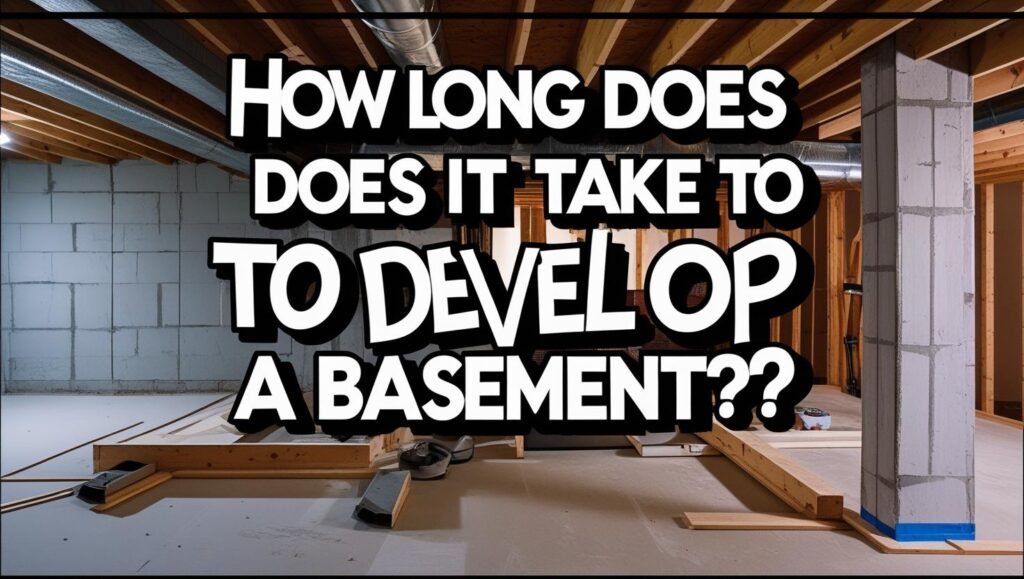How Long Does It Take to Develop a Basement?
Homeowners planning a basement remodel or build-out also want to know the same thing: How long does it take to build a basement? The response is not straightforward, as each project differs. Basement status, intended use, local rules and complexity of design elements play a role in determining all duration. Nevertheless, knowing the stages of the basement in the basement and the average time limit for each can provide realistic expectations.
Plan and Design (1 to 3 weeks)
The initial phase of any basement project is plan and design. This means deciding how you wish to utilize the space—a home theater, guest suite, gym, or rental unit, for example. You will also meet with a contractor or designer to make a budget and layout. During this phase, it’s important to secure permits and ensure compliance with local building codes, which can take anywhere from a few days to a few weeks depending on your municipality.
If you already have building plans or know precisely what you need, this phase can proceed rapidly. But if your concepts are still in development or structural evaluations are needed, it might take more time. Homeowners sometimes also dedicate this time to exploring finishes, flooring, and lighting, which will either speed up or slow down the next step based on how firm you are.
Site Preparation and Demolition (1 Week)
After the plan is complete and all the necessary permits are acquired, the property must be prepared. If your basement is not finished, that may involve clearing up debris, taking down old framing or insulation, and possibly treating for water damage or mold. In a remodeled finished basement, it could involve demolishing current walls, flooring, and ceiling material.
This stage usually lasts around a week, but major structural problems—such as water entry or cracks in the foundation—take longer. Repairing them before starting construction is the key to a long-lasting, trouble-free basement.
Framing, plumbing and power (2 to 4 weeks)
After cleaning the space, the rough framing begins. This involves the construction of walls, defines the room and prepares the outline for the design of the new basement. At the same time, plumbing and electrical systems are thickened. If you’re adding a bathroom, wet bar, or laundry room, this stage could take longer.
Inspectors will probably pay visits after this process to check that plumbing and electric work is up to code. These inspections may result in short delays, particularly if revisions need to be made. But this is a very important checkpoint to prevent complications later.
Insulation, Drywall, and Finishing Work (3 to 5 Weeks)
With framing done, insulation is added for efficiency and moisture protection. Next is drywall—installation, taping, and mudding, which lasts anywhere from a few days to a week based on the number of rooms and complexity.
After the walls are completed, the best part starts: paint, trim, doors, and floors. Cabinetry installation, countertops, and lighting fixtures occur here too. These final touches can fly by if all is ordered and ready to be installed, or take an eternity if there are backorders or custom items.
Final inspection and cleanup (1 week)
The final phase involves one last review and inspection, to ensure that the space is safe and the code is obedient. Your contractor can also arrange the final cleaning so your base is ready to move. Minor punch list items—such as touch-up paint or door adjustments—are taken care of in this phase.
Read More:— How I Selected the Top Basement Renovation Services
So, How Long Does It Take to Develop a Basement?
How long does it typically take to build a basement? Most typical basement finishing jobs take 6 to 10 weeks from the beginning to the end. Less complex rebuilds can be terminated in more than a month if the basement is partly completed and no significant plumbing or structural modifications are necessary. More complex projects – adapted to cabinet, unpainted Finnish or new tool running with running – 12 weeks or more time.
Delays do and will occur. Weather, delayed permit approvals, unforeseen structural problems, and shipping times on products can all impact the timeline. That’s why it’s so essential to hire a good contractor who has good communication and a well-delineated schedule in place from the start.
Tips to keep you on the plan
To ensure that your basement development lives on the schedule:
Further plan for materials. This means flooring, paint color, fixtures and furniture.
Keeping engaged with repeated check -in problems with your contractor will help you identify problems.
Prepare for unexpectedly. Create a cushion of at least one to two weeks in your timeline.
In summary, how long it takes to develop a basement (basement renovations) varies depending on so many factors. But with proper planning, achievable expectations, and the appropriate crew, your vision basement becomes a reality in a seamless and effective manner—truly transforming that wasted square footage into one of the most useful and stunning spaces in your house.





